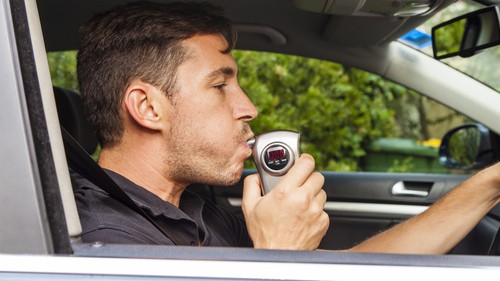If you are pulled over while driving and suspected of driving under the influence in Alabama, the officer on scene will likely ask you to submit to a breathalyzer test, a filed sobriety test, or both. While you have the right to refuse these test types, it is important that you understand that doing so may have consequences.
Opelika and Auburn Attorney Zach Alsobrook is experienced in handling the most complicated DUI cases and offers a number of things you need to know if you are pulled over under suspicion of DUI
Your Right to Refuse a Field Sobriety Test
Field sobriety tests are usually one of the first things that officers will ask those suspected of drinking while driving to perform. Unfortunately, these tests are neither uniform in the way that they are administered, nor the accuracy of the results that they yield. In fact, many researchers do not believe that field sobriety tests are an accurate measure of an individual’s level of intoxication or impairment, and there is no conclusive evidence that those who are sober will perform better on field sobriety tests than will those who are intoxicated. Further, many police officers may used unauthorized testing methods, such as asking an individual to recite the alphabet backwards. For these reasons, performing a field sobriety test (even if you are not intoxicated beyond the legal limit of .08 percent BAC, or blood alcohol concentration) may be disadvantageous. That being said, if you choose to refuse a field sobriety test, you have the right to do so.
Consequences of Refusing a Field Sobriety Test
If you refuse a field sobriety test, the officer will likely then ask you to submit to a breathalyzer test. If you have indeed been drinking, this can be incriminating and the results of the breathalyzer test can be used to arrest you and convict you of a DUI.
However, you have the right to refuse taking a breathalyzer test, just as you have the right to refuse a field sobriety test. While refusal of a field sobriety test does not have any automatic consequences (other than likely being asked to take a breathalyzer test), the refusal of a breathalyzer test does. If you refuse a breathalyzer test, Alabama Code Section 32-5-192 stipulates that your driver’s license will automatically be suspended for a period of 90 days. In many cases, a driver’s license suspension is more ideal than is a DUI conviction, and refusal is within your best interests.
What Happens if I Take a Field Sobriety Test and Fail?
If you take a field sobriety test and fail, you may be arrested. However, if there were any errors made during the administration of the test – such as using testing methods that are not sanctioned by the National Highway Traffic Safety Administration (NHTSA) – your attorney may be able to have the result of your field sobriety test thrown out. The same is true if a breathalyzer test indicated that you were intoxicated beyond the legal limit; breathalyzers are often defective, and do not always accurately reflect a defendant’s BAC.
If you fail a field sobriety test or a breathalyzer test, it is within your best interest to contact an aggressive Alabama DUI attorney as soon as possible. An attorney will help you to explore your legal options and improve your chances of a positive outcome.
Call the Law firm of Zach Alsobrook today, 334-737-3718


